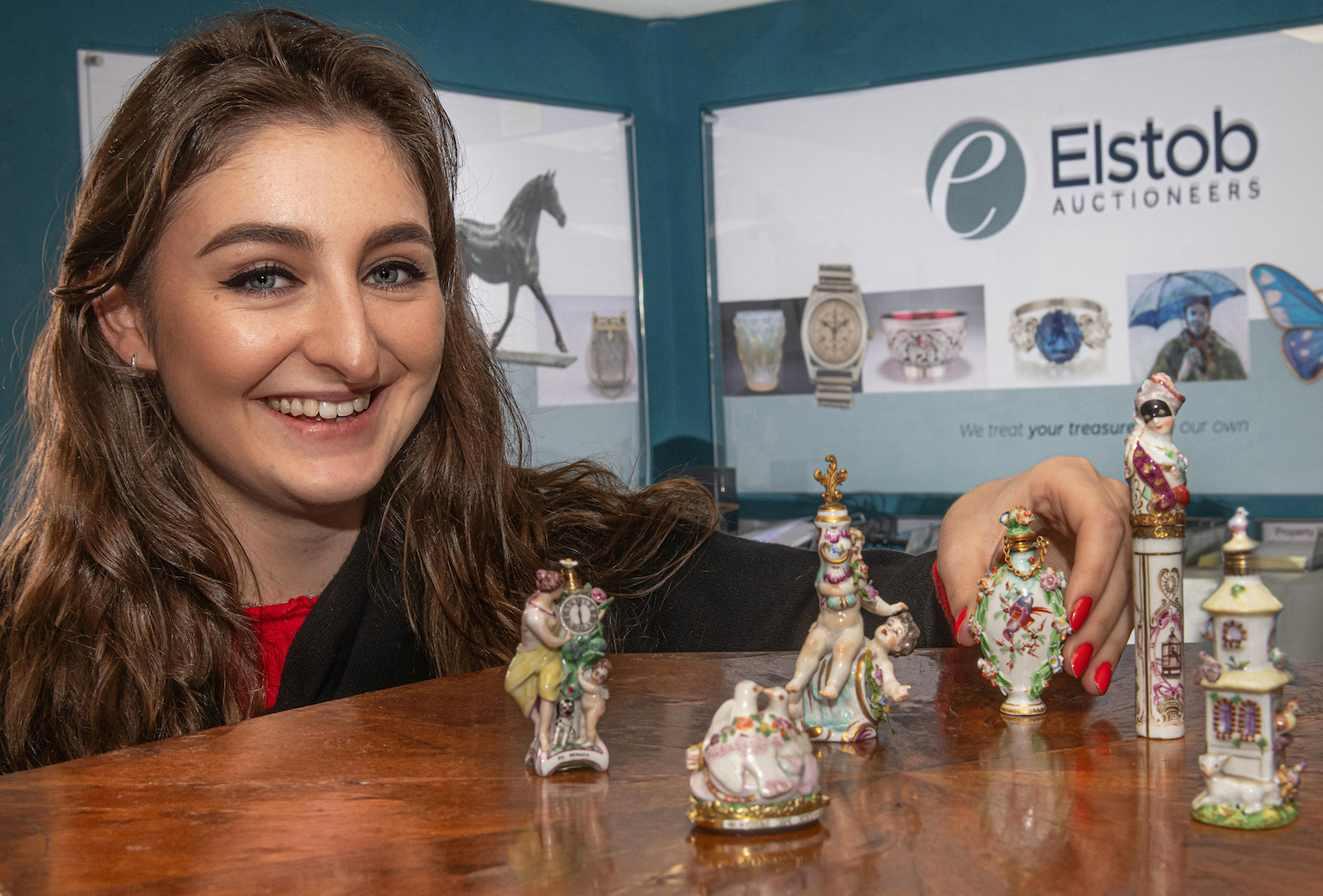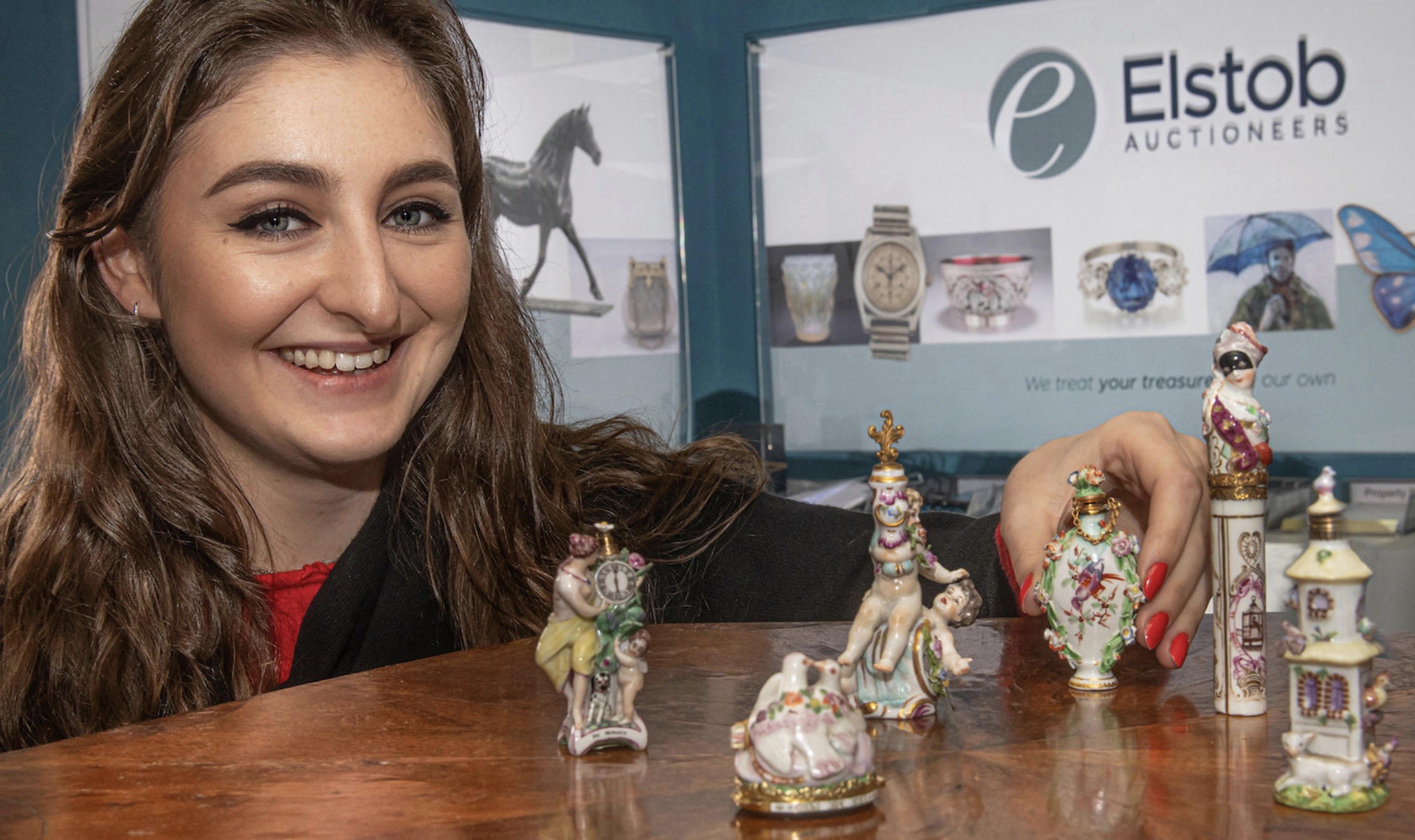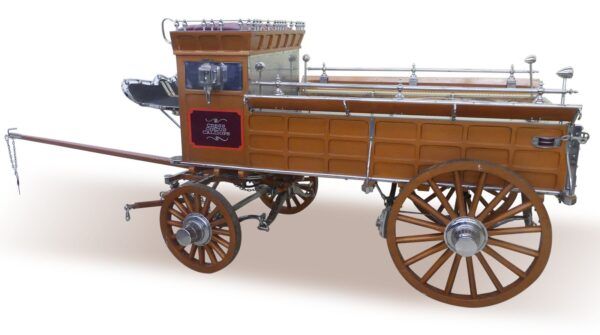#Chelsea #Porcelain #collection #Yorkshire #sale #Antique #Collecting
 Four 18th-century scent bottles are amongst a collection of highly sought-after Chelsea Porcelain to be offered at Elstob Auctioneers’ Fine Art and Antiques Sale on October 11.
Four 18th-century scent bottles are amongst a collection of highly sought-after Chelsea Porcelain to be offered at Elstob Auctioneers’ Fine Art and Antiques Sale on October 11.
Put up for sale by a private collector, the pieces come from the renowned Chelsea Porcelain factory, which was one of the first important porcelain manufacturers to be established in England after the European discovery of soft paste porcelain.

Although only in production for a short time (1745–1770), Chelsea Porcelain was coveted by the wealthiest people in 18th-century society, from royalty to elite collectors.
A well as the scent bottles, which carry price estimates of up to £3,000 each, the collection includes an ornate toothpick or bodkin case dating from 1760. Decorated with gilt scrollwork and depicting a bird in a cage, it is valued at £1,500-£2,500.
There is also a 1760 bonbonniere – a small ornamental box – designed in the form of a pair of doves with a quiver of arrows between them, painted with a garland of flowers. Measuring only 4.5cm wide, this tiny piece is expected to reach between £3,000-£5,000.

Auction house director, David Elstob, said: “Chelsea Porcelain is highly prized by collectors today and has a well-earned place in the antiques’ hall of fame. They produced items for the wealthiest of clients and the Chelsea Porcelain factory unquestionably dominated the market for high-quality English porcelain during this period.
“The factory also drew from a range of artistic influences led by the fashions of the time, and was informed by brilliant and talented craftspeople. This enabled it to compete with the finest ceramics that were imported from China and Japan,” he added.
Porcelain was first made in China in the 6th century using a particular white clay (kaolin) and feldspathic rock (petunse) – raw materials found abundantly in China. However, it wasn’t introduced to Europe until the 14th century where it was much admired and prized for its colour, translucency, extreme fineness and ability to hold boiling water. Although Chinese porcelain was imported in large quantities in the 16th century, it wasn’t until the 18th century that Europeans discovered alternative ingredients to kaolin and petunse and were able to produce their own soft-paste ceramics.

From the 1740s, a number of porcelain factories sprang up across Britain in places such as Worcester, Derby, Liverpool and Edinburgh but it was the London-based Chelsea Porcelain factory that was the most successful and prestigious.
Staffed by craftsmen of mostly French or Flemish origin, the items produced at Chelsea included tablewares such as cups, plates, sauce-boats and coffee pots, as well as figures, vases and scent bottles. Many of these were very small by European standards, overlapping with the category of ‘Chelsea Toys’, for which the factory was famous in the 1750s and 1760s. These were very small pieces, which were often functional as bonbonnières.
The factory operated independently until 1770 when it was merged with Derby Porcelain and production kept going at the London site until 1784 when the workshops were closed and the many moulds were either destroyed or removed to Derby.
Elstob Auctioneers Fine Art and Antiques Sale features over 750 fine-quality lots of ceramics and glass, metalwork, silver, Asian art, objects of vertu, rugs and carpets, clocks and instruments, and antique furniture.




